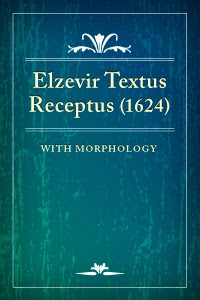
Biblical inerrancy means different things to different people. To some it means that the Scriptures as originally written by men inspired of the Holy Spirit were a perfect representation of the words of God. For some, though not all people, Biblical inerrancy also means that the Bible in its original form was perfect in all of its statements, whether they relate to history, science, medicine, or any other field of human study. I am among those who believe the Bible is inerrant in its original manuscripts, and I clearly believe that Yahweh, being the Creator of all things, has a far better understanding of history, science, and medicine than any human. I am confident that no original writing that He inspired men to write contained error.
More extreme views of the Bible inerrancy doctrine affirm that there are extant today specific versions of the Bible that are flawless, not having deviated through the years from the original autographs. Some people make similar claims of translations of the Bible that have been rendered into other languages. They insist that the Bible translators were divinely guided to a perfect and flawless expression of the thoughts and words of God as they labored to translate the Scriptures. One of the most recognized examples of this radical belief in an inerrant Bible is observed among those who assert, often with great prejudice and a very contentious spirit, that the King James Version is a perfect, and flawless English translation of the Scriptures. Many who hold to such a view demonize all other English Bible translations, and at times suggest that a person is not truly saved, nor in right standing before God, if they are using any Bible other than the KJV Bible.
I recently came across the account set forth by Samuel Martin on his blog where he writes of his uncle Virgil in the 1950s reproving Samuel’s father for speaking about recent scholarly developments relating to the Dead Sea Scrolls and Bible translations such as the Revised Standard Version. Virgil was a Nazarene preacher, honest as the day is long, and very sincere in his beliefs and loyal in his affiliations. He brought short the conversation by stating, “If the King James Version was good enough for Jesus, it’s good enough for me.”
[Source: https://heart4god.ws/wordpress/2011/11/if-king-james-version-was-good-enough.html]
This, of course, sounds much like the words attributed to Ma Ferguson of Texas who claimed that Jesus spoke the King’s English. Such comments are not at all uncommon. There exists a large group of conservative, fundamentalist Christians who have been raised in denominational churches that equate the King James Bible with the words of Christ and the apostles. Not all are ignorant of the fact that Christ and his apostles did not speak English, but a great many have no knowledge of the history and process of Bible translation.

A Sampling of English Bible Translations
Loyalty toward a particular Bible version for many is not unlike the attitude of sports fanatics who root for their favorite ball team, or individuals who believe the state or nation in which they were born and raised is superior to all others, simply because it is their state. These types of loyalties are frequently dissociated from fact and evidence. They represent emotional decisions, for their favored Bible version was the Bible their parents used, or the one their pastor, church, or denomination reads from.
As disciples of Christ, our loyalty should be to God and His kingdom, and our allegiance should be to truth wherever we may find it. Bible translations need to be judged upon their individual merits and shortcomings. It does no one any good to suspend a critical and unbiased examination of the evidence available to them. Yet, many turn a blind eye, and stop their ears, to any explanation of the merits and shortcomings of a beloved Bible translation. An Adamic sense of loyalty has closed their minds to consider that their translation may in fact have shortcomings and contain errors.
Christians may be surprised to learn that the type of bias manifested by zealous proponents of the KJV Only crowd is not a new phenomenon. Indeed, the history of manuscript and translation bias provides some examples that make the KJV Only proponents appear downright wishy washy. For centuries, the Roman Catholic Church dominated Europe and they forbid the Scriptures to be read in any language other than Latin, or in any translation other than Jerome’s Latin Vulgate. The penalty for violating this order was either excommunication, or, in darker times, death by drowning, burning at the stake, or some other form of torture that the inquisition could dream up. The Roman Catholic Church has given abundant evidence to the fact that religious people, even those who profess faith in Jesus Christ, when not subject to the leading of the Holy Spirit, are often some of the most prejudiced, hateful, and violent among all humanity.
The predilection for favoring a particular translation has frequently been due to a language, or cultural bias. At times, it has even been due to a prejudice against the Jews, as in the case of some who favored the Greek Septuagint translation over the Scriptures in the original Hebrew tongue. As far back as 2,000 years ago, there were religious men quarreling over Bible translations. When the Greek Septuagint gained popularity, some suggested that it was a far superior translation than the Hebrew Scriptures from which it was translated. There even developed myths that suggested that the 72 translators of the Septuagint were divinely aided in their work. One legend recorded in the Babylonian Talmud states that King Ptolemy of Egypt gathered the 72 Jewish scholars who created the Septuagint translation, placing each man in a separate room, and only then disclosed to them why they were summoned. Ptolemy is reported to have entered into each man’s chamber and said: “Write for me the Torah of Moshe, your teacher.” The Talmud relates that every one of the 72 Jewish men wrote out an exact copy of the Torah in the Greek language, word for word in agreement with each other for Yahweh guided them to produce a perfect translation.

Septuagint Symbol
Such an account is not only incredible, it is a complete falsehood. Yet men resort to such vanities in order to magnify a preferred Bible translation, embellishing it with exaggerated claims of being perfect and without error. One can imagine many present day Christians entertaining similar fictions in their minds regarding the manner in which the King James Bible came into existence.
One of the reasons the Greek Septuagint had reached a place of ascendancy among Jews, and later among Messianic Christians, is that Greek was the most widely spoken language of the Roman Empire. Jews who emigrated outside of the land of Canaan frequently adopted the language of the land in which they were dwelling. The Hebrew language waned, with fewer people being able to speak or read the language. When Christianity spread throughout the Roman Empire, many disciples of Christ arose who had never had any familiarity with Hebrew. It was quite reasonable that they would prefer a Greek translation of the Scriptures.
When in the year 382 A.D. Pope Damasus I delivered to Jerome the task of creating an updated Latin Version of the Bible, Jerome at first began to translate his Latin Bible from existing Greek manuscripts. He later reconsidered this decision, determining that it was far better to translate the Old Testament from the original Hebrew. It is hard to dispute such logic, for it is far better to translate from an original source language than to translate from a translation, as long as reliable original language manuscripts exist and the translator understands the language. Jerome was immediately taken to task for his decision to translate from the Hebrew, rather than from the Greek Septuagint. One of his critics was none other than St. Augustine. Following is a discourse between the two men as they carried forth a correspondence on this topic.
Jerome:
I have received letters so long and eagerly desired from my dear Desiderius … entreating me to put our friends in possession of a translation of the Pentateuch from Hebrew into Latin. The work is certainly hazardous and it is exposed to the attacks of my calumniators, who maintain that it is through contempt of the Seventy that I have set to work to forge a new version to take the place of the old. They thus test ability as they do wine; whereas I have again and again declared that I dutifully offer, in the Tabernacle of God what I can, and have pointed out that the great gifts which one man brings are not marred by the inferior gifts of another. But I was stimulated to undertake the task by the zeal of Origen, who blended with the old edition Theodotion’s translation and used throughout the work as distinguishing marks the asterisk and the obelus, that is the star and the spit, the first of which makes what had previously been defective to beam with light, while the other transfixes and slaughters all that was superfluous.
But I was encouraged above all by the authoritative publications of the Evangelists and Apostles, in which we read much taken from the Old Testament which is not found in our manuscripts. For example, ‘Out of Egypt have I called my Son’: ‘For he shall be called a Nazarene’: and ‘They shall look on him whom they pierced’: and ‘Rivers of living water shall flow out of his belly’ : and ‘Things which eye hath not seen, nor ear heard, nor have entered into the heart of man, which God hath prepared for them that love him’, and many other passages which lack their proper context. Let us ask our opponents then where these things are written, and when they are unable to tell, let us produce them from the Hebrew. The first passage is in Hosea, the second in Isaiah, the third in Zechariah, the fourth in Proverbs, the fifth also in Isaiah…
Are we condemning our predecessors? By no means; but following the zealous labors of those who have preceded us, we contribute such work as lies in our power in the name of the Lord. They translated before the Advent of Christ, and expressed in ambiguous terms that which they knew not. We after His Passion and Resurrection write not prophecy so much as history. For one style is suitable to what we hear, another to what we see. The better we understand a subject, the better we describe it. Hearken then, my rival: listen, my calumniator; I do not condemn, I do not censure the Seventy, but I am bold enough to prefer the Apostles to them all. It is the Apostle through whose mouth I hear the voice of Christ, and I read that in the classification of spiritual gifts they are placed before prophets, while interpreters occupy almost the lowest place. Why are you tormented with jealousy? Why do you inflame the minds of the ignorant against me? Wherever in translation I seem to you to go wrong, ask the Hebrews, consult their teachers in different towns. The words which exist in their Scriptures concerning Christ, your copies do not contain.
[Source: Jerome’s Apology, Book II, Nicene and Post Nicene Fathers, Second Series, Vol 3.]
Augustine:
For my part, I would much rather that you would furnish us with a translation of the Greek version of the canonical Scriptures known as the work of the Seventy translators. For if your translation begins to be more generally read in many churches, it will be a grievous thing that, in the reading of Scripture, differences must arise between the Latin Churches and the Greek Churches, especially seeing that the discrepancy is easily condemned in a Latin version by the production of the original in Greek, which is a language very widely known; whereas, if any one has been disturbed by the occurrence of something to which he was not accustomed in the translation taken from the Hebrew, and alleges that the new translation is wrong, it will be found difficult, if not impossible, to get at the Hebrew documents by which the version to which exception is taken may be defended. And when they are obtained, who will submit, to have so many Latin and Greek authorities: pronounced to be in the wrong? Besides all this, Jews, if consulted as to the meaning of the Hebrew text, may give a different opinion from yours: in which case it will seem as if your presence were indispensable, as being the only one who could refute their view; and it would be a miracle if one could be found capable of acting as arbiter between you and them.
[Source: Augustine of Hippo’s Letter LXXI, Nicene and Post-Nicene Fathers, First Series, Volume 1]
I will share a judgment on the correspondence that appears above. I believe that Jerome argues well from the perspective of one who is a lover of truth and who wants to produce an authentic and accurate translation of the Bible. Jerome is not concerned about the approval of men. He desires to be faithful to the testimony of the evangelists (those who wrote the Gospels) and the apostles. In many places the evangelists and apostles quoted Old Testament passages. Many of these Old Testament passages are not to be found in the Septuagint, or they are obscured by a poor translation, yet Jerome declared that they appeared in the Hebrew Scriptures that were extant at the time and present among all the Jews in their synagogues.

Saint Augustine – Catholic Theologian
On the other hand, Augustine is arguing from the perspective of one concerned with politics. He is concerned lest there be a division between Latin and Greek factions of the church. He argues that if the Latin Scriptures that Jerome is laboring to produce should deviate from the Greek Scriptures that “differences” will arise. Such an argument is unworthy of one who proclaims to be a follower of Christ. Truth, not politics, should be the guiding principle for the disciple of Christ. It matters not whether there be irreconcilable differences between the Septuagint and a new Bible translation, as long as the new translation is accurate to the original autographs of the prophets, and consistent with the inspired quotations of the Gospel writers and apostles.
Jerome mentions that he has been inspired by the zeal of Origen, one of the early church fathers and the creator of the Hexapla, the six translation Bible previously mentioned. Origen used a system of asterisks and obelisks to mark where the Greek translations deviated from the Hebrew. Origen marked with an obelisk and asterisk where words or sentences had been added or omitted in the Greek text. Some of the additions and omissions were deliberate, and done with evil intent. Jerome describes Theodotion, who produced one of the Greek translations, as “a man who, after the passion of Christ, was a Jew and a blasphemer.” That is to say, Theodotion denied that Yahshua was the Christ, the Son of God. Theodotion made deliberate alterations to the Greek Scriptures to obscure those passages in the Old Testament that would lend credence to the truth that Yahshua was indeed the Son of God and the Jew’s promised Messiah. These alterations had made their way into the Septuagint of Jerome and Augustine’s day. In a follow-up letter Jerome asks Augustine why, if he is so zealous for the Septuagint, does he not use the original version of that translation ascribed to the seventy, rather than the altered and corrupted versions that were common at the time.
Jerome ascribes the introduction of errors into the Septuagint to Origen who merged Theodotion’s version of the Greek Old Testament with the original Septuagint. Origen did, however, indicate where changes had been made to the Greek text. Where there was additional material added by Theodotion, he marked the content with an asterisk. Jerome then challenges Augustine to only accept those portions of the Septuagint where there are no asterisks, for then he would be true to the original Septuagint. He cautions Augustine, however, warning him that if he is faithful to the seventy that he will find himself at odds with all of the Bibles in use by the Christian churches of the day.
I am surprised that you do not read the books of the Seventy translators in the genuine form in which they were originally given to the world, but as they have been corrected, or rather corrupted, by Origen, with his obelisks and asterisks; and that you refuse to follow the translation, however feeble, which has been given by a Christian man, especially seeing that Origen borrowed the things which he has added from the edition of a man who, after the passion of Christ, was a Jew and a blasphemer. Do you wish to be a true admirer and partisan of the Seventy translators? Then do not read what you find under the asterisks; rather erase them from the volumes, that you may approve yourself indeed a follower of the ancients. If, however, you do this, you will be compelled to find fault with all the libraries of the Churches; for you will scarcely find more than one manuscript here and there which has not these interpolations.
[Source: Ibid]
This discourse between these two men reveals the disparity that existed in the Greek Bibles over 1,600 years ago, and the prejudice that existed among men such as Augustine who favored a specific translation. Augustine’s bias in favor of the Septuagint was not based upon the merits of the translation, for it had been corrupted, and many variants existed. I believe Jerome’s attitude is the proper one. He favored examining all the existing manuscripts, whether Hebrew, or Greek, while laboring to arrive as closely as possible to the original words of the prophets. Ironically, in time, the Roman Catholic Church would manifest the same bias in favor of Jerome’s Latin translation as Augustine had demonstrated for the Greek Septuagint.

In the 16th century we see a similar manifestation of translation bias for a specific Bible as some began to inordinately venerate Erasmus’ Latin/Greek Bible which came to be known as the Textus Receptus. Erasmus never boasted of having created a flawless Bible translation. As so often happens, the error of claimed inerrancy originates with others who come afterwards. In this case, the claim of an inerrant text was motivated by the basest of motives, the love of money.
The sobriquet Textus Receptus was attached to Erasmus’ Greek New Testament by a publisher to boost sales. Erasmus’ title for his Greek and Latin New Testament was Novum Instrumentum omne, diligenter ab Erasmo Rot. Recognitum et Emendatum which roughly translates into English as “The New Testament, Diligently Revised and Improved.”
It wasn’t until 1633, a century after Erasmus first published his Bible translation, and long after he had died, that the phrase Textus Receptus was used to describe this often altered Greek New Testament. The Elzevir publishers of the Dutch city of Leiden included a preface to the book which read, “Textum ergo habes, nunc ab omnibus receptum: in quo nihil immutatum aut corruptum damus,” which translates into English as, “so you hold the text, now received by all, in which (is) nothing corrupt.” Leave it to merchants to create a controversy that continues to this day. In a self-serving attempt to magnify the book they were offering for sale, the Elzevir publishers claimed that this Greek translation was inerrant, and that it was received by all.
It is misguided to claim that any Greek or English translation existent today is inerrant. Erasmus did not claim his Greek New Testament to be inerrant. Rather, he continued to make corrections to it throughout his life. Neither did the translators of the King James Bible profess that they had produced a flawless English Bible version. The KJV translators included a preface to the Bible that was titled “The Translators to the Reader.”
Truly (good Christian Reader) we never thought from the beginning, that we should need to make a new Translation, nor yet to make of a bad one a good one,… but to make a good one better, or out of many good ones, one principal good one, not justly to be excepted against; that hath been our endeavor, that our mark.
The entire preface can be found at the following link:
http://www.ccel.org/bible/kjv/preface/pref10.htm
Consider the language used by the translators. They said their aim was to make a “better” translation of the Scriptures. They did not say a “flawless,” nor an “inerrant” translation, for perfection was beyond their grasp. They stated that they sought to produce a “good” Bible translation. Once again, the language employed falls short of the grandiose claims of many today who would, out of irrational bias, declare that in the KJV Bible is found a perfect and inerrant translation of the Word of God.
It is unreasoning and baseless to claim that either the Textus Receptus or the KJV Bible are inerrant. Not only did Erasmus publish five different versions of his Latin/Greek Scriptures, but other men altered them further. Robert Estienne, known as Stephanus, produced five different versions of Erasmus’ Greek New Testament, making further changes to the text with each edition. Theodore Beza in turn took the third edition of Stephanus’ text, editing it nine times between the years 1565 and 1604.
We find that a similar experience befell the King James Bible. The 1611 edition of the KJV Bible, the very first one to be published, is very different than the KJV Bible sold today. There have been numerous revisions to the KJV Bible. The version sold today is widely identified as the 1769 Baskerville Birmingham revision. This Bible, was originally printed in Birmingham, England by renowned printer John Baskerville. The Baskerville revision of the KJV Bible modernized the language. The 1611 Bible used spellings such as “Hierusalem,”‘ “Marie,” “assone,” “foorth,” “shalbe,” “fet,” “creeple,” “fift,” “sixt,” “ioy,” “middes,” and “charet,” which you will no longer find in a KJV Bible, though they still are advertised as “1611 King James Bibles.” Baskerville followed the revisions of F.S. Paris and H. Therold who produced an updated language version of the KJV in 1762. The Baskerville Birmingham Bible also introduced some other changes of wording.

Font Developed By, and Named After, John Baskerville
It is well to comment somewhat on John Baskerville, the printer. Although a near genius at originating innovations in printing that led to vastly improved print quality, the man was all his life a professed atheist. In his later years he lived openly with the wife of another man (her husband had reportedly abandoned her), though they never married. Baskerville was a member of the Lunar Society, a philosophical society attended by other “enlightenment” thinkers such as Erasmus Darwin, and Benjamin Franklin. He was very outspoken against those he considered to be religious bigots. That he would print a very successful revision of the King James Bible that has become the standard text for KJV Bibles today is not inexplicable, for the Bible has always been a best seller. He was, after all, a merchant seeking to turn a profit.
Although Baskerville was an atheist, and no friend of Christians, this does not necessarily mean that the KJV Bible is a wretched work (though it certainly contains errors and shortcomings). It does, however, destroy the argument that would suggest that the KJV Bible we have today was produced by a divine act of God as he moved upon Christian men resulting in an inerrant text of the Scriptures in the English language.
More will be shared on the subject of errors in the Biblical text in the next chapter. My point in this post, is that claims of inerrant Bible translations are not a new phenomenon. Manuscript and translation bias has existed at least as far back as the time of the early church when Jewish myths about the translators of the Septuagint were passed around to bolster the reputation of this Greek Bible. The same type of bias was demonstrated by the Roman Catholic Church who favored Jerome’s Latin translation of the Bible, and by Protestants in Europe from the 16th century forward who placed an inordinate veneration upon Erasmus’ Textus Receptus. Today we find that there are many Christians committing the same egregious error by suggesting that the KJV Bible is inerrant, or superior, to all other English language Bibles. The saying of Solomon is true:
Ecclesiastes 1:9
That which has been is that which will be, and that which has been done is that which will be done. So, there is nothing new under the sun.
Heart4God Website: http://www.heart4god.ws
Parables Blog: www.parablesblog.blogspot.com
Mailing Address:
Joseph Herrin
P.O. Box 804
Montezuma, GA 31063


0 Comments